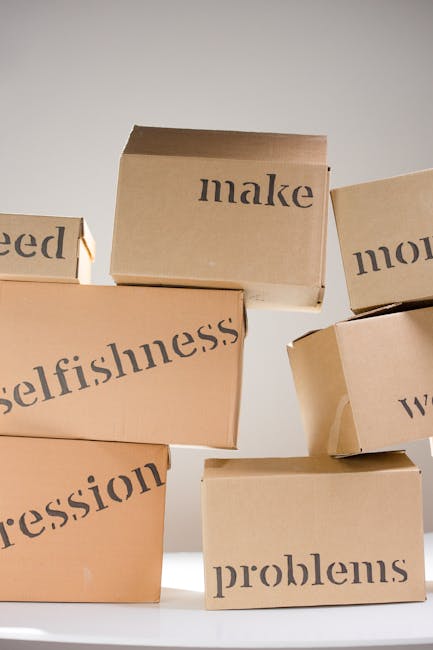Mental Health: The Impact of Isolation
In our increasingly connected world, the irony of feeling isolated has never been more prevalent. Despite the technological advancements that keep us in touch, many individuals experience loneliness and isolation, which can significantly impact mental health. This blog post explores the effects of isolation on mental health, backed by statistics and real-world examples, and offers actionable tips to combat this growing concern.
Understanding Isolation and Its Causes
Isolation can be defined as a state of being separated from others, either physically or emotionally. While some solitude can be beneficial, prolonged isolation can lead to serious mental health issues. Several factors can contribute to isolation, including:
- Geographical distance from family and friends.
- Technological overuse leading to reduced face-to-face interactions.
- Health issues that limit mobility or social engagement.
- Social anxiety or lack of social skills.
The Psychological Impact of Isolation
Increased Risk of Depression and Anxiety
Research indicates that isolation significantly increases the risk of mental health disorders such as depression and anxiety. According to a study published in the Journal of Clinical Psychiatry, individuals experiencing chronic loneliness were 50% more likely to suffer from depression. The lack of social interaction can exacerbate feelings of worthlessness and sadness, creating a vicious cycle.
Cognitive Decline and Memory Loss
Isolation not only affects emotional well-being but also cognitive health. Studies have shown that socially isolated individuals face a higher risk of cognitive decline and memory loss. A report by the Alzheimer’s Association reveals that loneliness can increase the risk of dementia by up to 40%.
Physical Health Consequences
The impact of isolation extends beyond mental health, affecting physical well-being as well. A lack of social connections can lead to increased stress levels, which are associated with a range of health problems such as heart disease, obesity, and weakened immune function. According to the National Institute on Aging, loneliness can have the same impact on mortality as smoking 15 cigarettes a day, making it a serious public health concern.
Real-World Examples of Isolation’s Impact
Consider the case of Sarah, a 42-year-old woman living in a bustling city. Despite being surrounded by people, Sarah felt isolated due to her demanding job and reliance on digital communication. Over time, she developed symptoms of anxiety and depression, which affected her performance at work and her personal life. After seeking help, Sarah realized the importance of meaningful face-to-face interactions and gradually rebuilt her social connections.
Similarly, John, a retiree living in a rural area, experienced isolation after the death of his spouse. The lack of social engagement led to feelings of loneliness and despair. By joining a local community group and volunteering, John found a renewed sense of purpose and significantly improved his mental health.
Actionable Tips to Combat Isolation and Improve Mental Health
1. Build and Maintain Social Connections
One of the most effective ways to combat isolation is to build and maintain social connections. Engage in activities that interest you, join clubs or groups, and reach out to family and friends regularly. Even small interactions can have a significant positive impact on your mental health.
2. Limit Screen Time and Embrace Face-to-Face Interaction
While technology is a useful tool for staying connected, excessive screen time can contribute to feelings of isolation. Make a conscious effort to reduce your screen time and prioritize face-to-face interactions. Consider organizing in-person meetups or video calls that mimic real-life interactions.
3. Seek Professional Help When Needed
If you find that feelings of isolation are overwhelming, seeking professional help is crucial. Therapy or counseling can provide you with the tools to cope with loneliness and improve your mental health. Many professionals offer remote sessions, making it easier to access support from the comfort of your home.
4. Engage in Mindful Practices
Mindfulness practices such as meditation, yoga, and journaling can help reduce stress and improve mental clarity. These activities encourage self-reflection and self-awareness, helping you to better understand and manage your emotions.
5. Volunteer and Give Back to the Community
Volunteering not only helps others but also provides an opportunity to connect with people and build a sense of community. Engaging in volunteer work can enhance your sense of purpose and belonging, reducing feelings of isolation.
Conclusion: Addressing Isolation for Better Mental Health
Isolation is a growing concern with significant implications for mental and physical health. By understanding its causes and effects, and implementing actionable strategies, individuals can combat loneliness and enhance their overall well-being. Building social connections, embracing face-to-face interactions, and seeking professional help when needed are vital steps toward a healthier, more connected life.
Remember, you are not alone. By taking proactive steps, you can overcome isolation and improve your mental health. Start today by reaching out to someone, joining a community group, or simply sharing a smile with a stranger. Every effort counts in the journey towards a healthier, happier life.
Share this content:
About The Author
Discover more from J and J Fitness
Subscribe to get the latest posts sent to your email.




